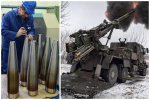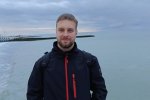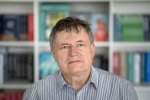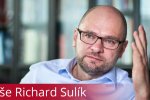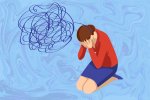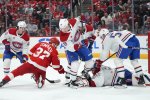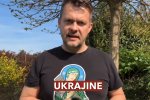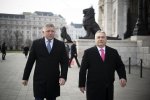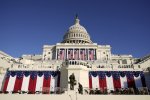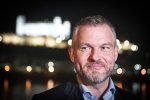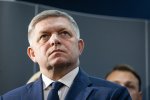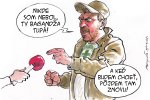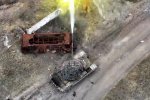Prečo Rusi v referende hlasovali proti sebe samým
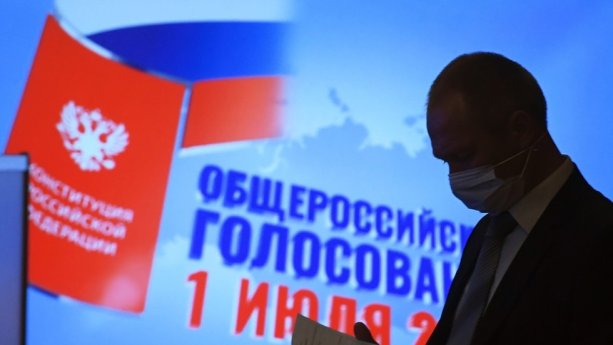
English text below: Why did the Russians vote against themselves in the referendum
Som presvedčený o tom, že keď oligarchovia a rodinní príslušníci prezidenta Borisa Jeľcina združení v zoskupení s názvom Rodina vyberali na konci minulého storočia Jeľcinovho nástupcu, nemohli ani len tušiť, čo spôsobí ich výber. Boris Berezovskij, Roman Abramovič (áno, neskorší vlastník Chelsea Londýn), Alexander Vološin, Valentin Jumašev a jeho neskoršia žena Tatiana (Jeľcinova dcéra) stavili na istotu. Stavili na toho, kto môže prezidentovi Jeľcinovi aj im samým a ich blízkym a priateľom zaistiť trestnoprávnu imunitu. A tiež stavili na toho kto môže mladý štát zastabilizovať. Určite však netušili, že ich bábka, Vladimir Putin, ich čoskoro predčí a on sám postupne uchopí moc, o ktorej mohli oni sami len snívať. Určite boli prekvapení, čo tento, na prvý pohľad nesmelý a utiahnutý, no vnútri mimoriadne ambiciózny a nekompromisný bývalý príslušník KGB, petrohradský a neskôr aj moskovský úradník a šéf FSB dosiahol.
Nebudem sa tu zdĺhavo rozpisovať o tom, ako Putin prišiel k moci a ako si ju počas nasledujúcich rokov a desaťročí upevňoval. V krátkosti však možno povedať, že prinútil oligarchov uzavrieť s ním viac-menej tajnú dohodu, aby ho neobmedzovali vo vládnutí. A tých neposlušných, ako napríklad Michaila Chodorkovského v kauze JUKOS, dal potrestať. Alebo to urobil prinajmenšom len ako exemplárny príklad na odstrašenie pre ostatných mocichtivých a ziskuchtivých jedincov a skupiny. Upevnil moc bezpečnostných zložiek v štáte a predovšetkým ju dal ich bývalým a súčasným vysokým predstaviteľom. V priebehu času urobil veľa prekvapivých vymenovaní do funkcií a odvolávaní z nich, čím si postupne upevňoval moc. Z neho samotného a z jeho najbližších spolupracovníkov (ktorí sa v priebehu času menili) sa stali ľudia silní ba až silnejší než samotní finanční a majetkoví magnáti a oligarchovia. Stali sa z nich politickí oligarchovia, ktorí mali a majú moc aj peniaze. Vlastnia majetky nielen v Rusku, ale aj v zahraničí, Európu nevynímajúc.
Ako si však Putin viedol v pomoci obyčajným Rusom? A čo urobil pre postavenie Ruska na medzinárodnom poli? Putinovi treba priznať, že zdevastovanú krajinu po dlhých desaťročiach zastaralého socializmu, po jej kolapse na začiatku deväťdesiatych rokov a po neslávnej vláde Borisa Jeľcina dokázal zastabilizovať. Ekonomicky aj bezpečnostne. Dokázal sa popasovať so separatistickými tendenciami (Čečensko) aj s terorizmom (podľa niektorých však išlo o podvod a premyslenú hru, ktorá mala zabezpečiť Putinovi popularitu). Robil aj chyby (reakcia na potopenie jadrovej ponorky Kursk), ale celkovo si viedol dobre. Na začiatku 21. storočia si postupne získaval a udržiaval popularitu. Snažil sa nadviazať dobré vzťahy so Spojenými štátmi Americkými (Putin bol 1. zahraničný líder ktorý USA prisľúbil pomoc po 11. septembri 2001) aj s ostatným svetom. A čo je najhlavnejšie, robil ekonomické reformy. HDP na obyvateľa Ruskej federácie sa po prepade na približne 1 330 dolárov v roku 1999 vyšplhal až na 11 635 dolárov v roku 2008, čo bol neuveriteľný nárast. Po zotavení krajiny z globálnej finančnej krízy sa dostal až na 16 007 dolárov. V porovnaní s USA, so západnými krajinami alebo s krajinami bývalého východného bloku združených v EÚ to bolo stále málo, ale bol to pekný nárast. Logicky sa analogicky zvyšovala aj životná úroveň obyvateľov.
Putin však, tak ako každý iný, nie je človek dokonalý, aj keď mnoho jeho priaznivcov si to nemyslí. Dobehlo ho to, čo dobieha mnohých politikov, ktorí sú už dosť dlho na vrchole a nie sú voči tomu imúnni. Aj mladým a energickým reformátorom sa môže totiž stať, že namiesto ďalších potrebných reforiem začnú robiť populárne aj keď pre krajinu často nezodpovedné kroky, len aby si udržali moc. Energia starých ekonomických reforiem vychladla a nové neprichádzali. Z Putina sa začal stavať čoraz väčší populista. Na to využil svoju bábku, Dmitrija Medvedeva, s ktorým si dočasne vymenil prezidentskú funkciu. Medvedev bol totiž populárny na sociálnych sieťach a slúžil ako ďalšia nová tvár, ktorá pritiahne voličov a popularitu. Z populistických krokov sa začali čoraz častejšie stávať kroky autoritárske. Nakoniec mal Putin už len jediný cieľ: udržať si svoju moc za každú cenu. Aj keby to malo znamenať rozháňanie protestov, zatýkanie a diskreditovanie politických oponentov a nepohodlných novinárov či dokonca ich vraždy. Aj keby to malo znamenať zhoršenie vzťahov na medzinárodnej úrovni, izoláciu Ruskej federácie, anexiu Krymu, vojnu v Donbase, vyhrážky pobaltským republikám, stredoeurópskym, Škandinávskym aj ďalším štátom, dezinformačnú a hybridnú vojnu, trollie farmy, kybernetické útoky, neuveriteľné zbrojenie a vývoj a nasadzovanie nových typov zbraní, vojenské cvičenia, angažovanie sa vo vojne v Sýrii, vstupovanie do cudzích záležitostí aj politických a volebných procesov, rozkladanie súčasného medzinárodného poriadku a západnej globalizovanej spoločnosti, do ktorej chcelo istého času patriť aj samotné Rusko a jeho predstavitelia.
1.júla sa v Rusku skončilo referendum o ústavných zmenách. Vyše trištvrte občanov podľa oficiálnych výsledkov hlasovalo za zmeny, ktoré okrem iného umožnia Putinovi byť pri moci eventuálne až do roku 2036. Referendum sa samozrejme vyhráva ľahko, keď je skutočná opozícia v krajine zdecimovaná a ostatná opozícia je iba krovie ktoré má zabezpečiť vždy prijateľné výsledky. Takisto sa ľahko vyhráva, keď máte ovládnutý prakticky celý mediálny priestor v krajine. Tiež by som bol zvedavý, či ľudia vedeli o čom všetkom vlastne presne hlasujú a aké zmeny sa chystajú a aké z toho budú pre nich samých plynúť dôsledky. Na jednom videu som si všimol pred volebným stánkom pani, ktorá tvrdila, že jedine Rusko (a teda Putin) počas koronakrízy umožnilo svojim občanom zostať doma a poberať dovolenky. Vraj to žiadna iná krajina neumožnila. Smutné však je, že pani tomu evidentne verila.
Ako píše vo svojom komentári na portáli iDnes.cz Vladimír Votápek, „Některé návrhy [zmien ústavy; pozn. autora ] by si přitom podrobnější analýzu zasloužily. Snad nejproblematičtějším momentem jsou ustanovení kritizovaná takzvanou Benátskou komisí. Tento poradní sbor Rady Evropy upozornil ruskou vládu, že navrhované změny ústavy jsou v rozporu se závazky, které na sebe země vzala, když v roce 1996 do Rady Evropy vstoupila. Tím, že RF ratifikovala Evropskou úmluvu o lidských právech, se dobrovolně podřídila jurisdikci Evropského soudu pro lidská práva. Jeho nálezy musí zůstat v Ruské federaci vykonatelné bez ohledu na mínění ruské vlády nebo místních soudů.
Text navrhovaných změn ústavy, umožňujících Ústavnímu soudu RF zablokovat rozhodnutí mezinárodních organizací, včetně vykonatelnosti rozsudků ESLP, je ovšem v přímém rozporu se závazkem, který vyplývá z členství RF v Radě Evropy. Můžeme tedy očekávat, že ruská vláda bude ke svým mezinárodním závazkům přistupovat v budoucnosti ještě méně odpovědně než dosud. Tím spíše, že nezávislost případného arbitra, tedy Ústavního soudu, je dále zpochybněna jiným navrhovaným ustanovením, dávajícím Radě federace pravomoc ukončit na návrh prezidenta mandát soudců, včetně soudu ústavního. Až dosud takový návrh na odvolání musel přijít ze soudní moci, nikoli od prezidenta.“ (Zdroj: https://www.idnes.cz/zpravy/zahranicni/komentar-rusko-referendum-volby-putin.A200702_212847_zahranicni_lesa).
„Sám Putin v televizi prohlásil, že se ještě nerozhodl, zda po roce 2024 zůstane v Kremlu, ale že samotná existence takové možnosti bude zásadní – jinak by místo normální práce pro stát začalo na všech příčkách moci hledání možného nástupce. „Musíme pracovat, a ne hledat nástupce,“ zdůraznil.“ (Zdroj: https://www.idnes.cz/zpravy/zahranicni/rusko-referendum-ustava-zmena-prezident-putin-vlada-mandat-prodlouzeni.A200701_205047_zahranicni_pmk). Inými slovami, Vladimir Putin len potvrdil to, že nie ruskí občania v demokratických voľbách a v súboji osobností, myšlienok, idejí a plánov rozhodnú o svojom ďalšom prezidentovi, ale že ich nový a ďalší prezident sa vyberie v pozadí moci a voľby budú len pseudodemokratické. Ostatne, ako doteraz.
Why did the Russians vote against themselves in the referendum
I am convinced that when President Boris Yeltsin’s oligarchs and family members in the Family group chose Yeltsin’s successor at the end of the last century, they could not even guess what would cause their selection. Boris Berezovsky, Roman Abramovich (yes, later owner of Chelsea London), Alexander Voloshin, Valentin Yumashev and his later wife Tatiana (Yeltsin’s daughter) were sure. They relied on someone who could secure criminal immunity for President Yeltsin and for themselves and their loved ones. And they also relied on someone who could stabilize the young state. But they certainly had no idea that their puppet, Vladimir Putin, would soon surpass them, and he himself would gradually seize the power they could only dream of. They must have been surprised at what this, at first glance timid and tight, but inside an extremely ambitious and uncompromising former member of the KGB, a St. Petersburg official and later a Moscow official and head of the FSB, achieved.
I will not go into lengthy detail here about how Putin came to power and consolidated it over the years and decades to come. In short, however, he forced the oligarchs to enter into a more or less secret agreement with him so as not to restrict him from governing. And he punished the disobedient, such as Mikhail Khodorkovsky in the YUKOS case. Or he did so, at least as an exemplary example, to deterr other powerful and lucrative individuals and groups. He strengthened the power of the security forces in the state and, above all, gave it to their former and current high officials. Over time, he made many surprising appointments and dismissals, gradually consolidating his power. He himself and his closest collaborators (who have changed over time) have become people strong or even stronger than the financial and property magnates and oligarchs themselves. They became political oligarchs who had and still have power and money. They own property not only in Russia but also abroad, including Europe.
But how did Putin do in helping ordinary Russians? And what did he do for Russia’s position on the international stage? Putin must be admitted that he was able to stabilize economically and securely the devastated country after many decades of outdated socialism, its collapse in the early 1990s and the infamous government of Boris Yeltsin. He managed to deal with separatist tendencies (Chechnya) as well as terrorism (but according to some, it was a fraud and a deliberate game that was supposed to ensure Putin’s popularity). He also made mistakes (reaction to the sinking of the Kursk nuclear submarine), but overall he did well. At the beginning of the 21st century, it gradually gained and maintained popularity. He sought to forge good relations with the United States (Putin was the first foreign leader to pledge aid to the United States after September 11, 2001) and with the rest of the world. And most importantly, he did economic reforms. After falling to about $ 1,330 in 1999, GDP per capita in the Russian Federation climbed to $ 11,635 in 2008, an incredible increase. After the country recovered from the global financial crisis, it reached up to $ 16,007. Compared to the US, the Western countries or the countries of the former Eastern bloc associated in the EU, this was still few, but it was a nice increase. Logically, the living standards of the population also increased by analogy.
However, Putin, like everyone else, is not perfect, although many of his supporters do not think so. It has caught up with him what is catching up with many politicians who have been at the top for quite some time and are not immune to it. Even young and energetic reformers may start to take popular, albeit often irresponsible, steps for the country, instead of further necessary reforms, just to maintain power. The energy of the old economic reforms cooled and new ones did not come. Putin began to become an increasingly populist. He used his puppet, Dmitry Medvedev, with whom he temporarily exchanged the presidency for this. Medvedev was popular on social networks and served as another new face that will attract voters and popularity. Populist steps became more and more authoritarian. In the end, Putin had only one goal: to maintain his power at all costs. Even if it means dispelling protests, arresting and discrediting political opponents and uncomfortable journalists, or even murdering them. Even if this means deteriorating international relations, the isolation of the Russian Federation, the annexation of Crimea, the war in Donbas, threats to the Baltic republics, Central Europe, Scandinavian and other states, disinformation and hybrid war, troll farms, cyber attacks, incredible armaments and development of new types of weapons, military exercises, engagement in the war in Syria, entering into foreign affairs as well as political and electoral processes, the disintegration of the current international order and Western globalized society, which for some time wanted Russia and its representatives to join in.
On July 1, a referendum on constitutional changes ended in Russia. According to official results, more than three-quarters of the citizens voted in favor of changes that will allow Putin to be in power until 2036. Of course, the referendum is easily won when the real opposition in the country is decimated and the other opposition is just a bush that should always ensure acceptable results. It is also easy to win when you have control of virtually all of the media space in the country. I would also be curious if people knew exactly what they were actually voting on and what changes were planned and what the consequences would be for them. In one video, I noticed in front of the polling station a lady who claimed that only Russia (and therefore Putin) allowed its citizens to stay at home and take holidays during the coronavirus crisis. She said that no other country has allowed this. Sadly, however, the lady obviously believed that.
As Vladimír Votápek writes in his commentary on the iDnes.cz portal, “Some proposals [for changes to the constitution; author’s note] would deserve a more detailed analysis. Perhaps the most problematic moments are the provisions criticized by the so-called Venice Commission. The Council of Europe’s Advisory Council has alerted the Russian Government that the proposed changes to the Constitution run counter to the country’s commitments when it joined the Council of Europe in 1996. By ratifying the European Convention on Human Rights, the Russian Federation has voluntarily submitted to the jurisdiction of the European Court of Human Rights. Its findings must remain enforceable in the Russian Federation regardless of the opinion of the Russian government or local courts.
However, the text of the proposed amendments to the Constitution, enabling the Constitutional Court of the Russian Federation to block decisions of international organizations, including the enforceability of ECtHR judgments, is in direct conflict with the obligation arising from the Russian Federation’s membership in the Council of Europe. We can therefore expect the Russian Government to approach its international obligations even less responsibly in the future than before. All the more so as the independence of a possible arbitrator, ie the Constitutional Court, is further called into question by another proposed provision giving the Federation Council the power to terminate the mandate of judges, including the Constitutional Court, on the proposal of the President. Until now, such a motion for appeal has had to come from the judiciary, not from the president.” (Source: https://www.idnes.cz/zpravy/zahranicni/komentar-rusko-referendum-volby-putin.A200702_212847_zahranicni_lesa).
„Putin himself said on television that he had not yet decided whether to stay in the Kremlin after 2024, but that the very existence of such a possibility would be crucial – otherwise instead of normal work for the state, the search for a possible successor would begin. „We have to work, not look for a successor,“ he stressed.“. In other words, Vladimir Putin only confirmed that not in the democratic elections and in the duel of personalities, thoughts, ideas and plans, they will decide on their next president, but that their new and next president will be chosen in the background of power and elections will only be pseudo-democratic. After all, as before.

